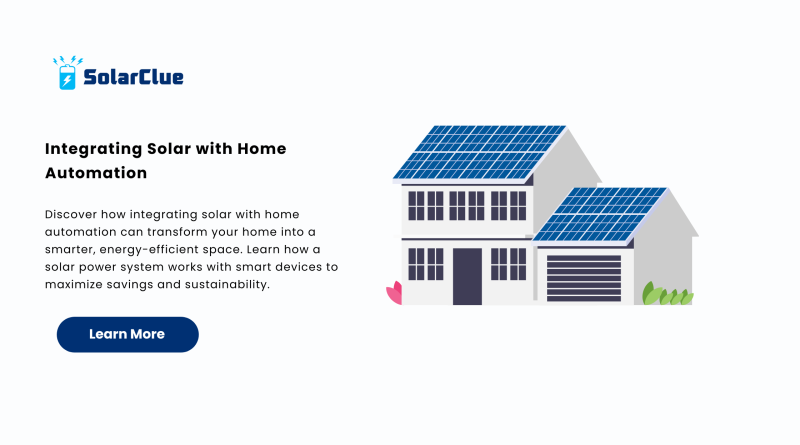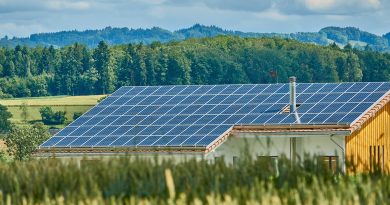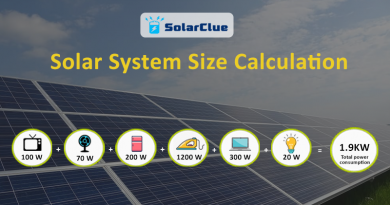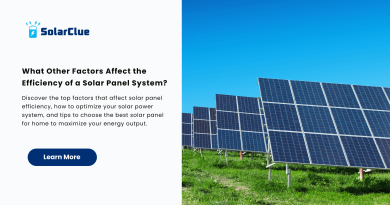Integrating Solar with Home Automation
The way we live is changing rapidly. Today, smart homes are no longer just about convenience—they’re about sustainability and efficiency. At the heart of this revolution lies the integration of solar power with home automation. By combining renewable solar energy with intelligent devices, homeowners can take complete control of their energy consumption, reduce electricity bills, and contribute to a greener planet.
Table of Contents
- 1 What is Solar Home Automation?
- 2 Why Integrating Solar with Home Automation is the Future
- 3 How Solar Power Systems Work with Smart Devices
- 4 Key Benefits of Solar-Integrated Smart Homes
- 5 Practical Applications of Solar-Driven Smart Homes
- 6 Challenges in Integrating Solar with Home Automation
- 7 The Future of Solar and Smart Homes
- 8 FAQs on Integrating Solar with Home Automation
- 9 Conclusion
What is Solar Home Automation?
Solar home automation refers to the use of a solar power system connected with smart technologies to monitor, manage, and optimize energy usage. Instead of relying entirely on the grid, your solar panel system generates clean electricity, and smart devices decide how and when that energy is consumed. For example, your smart thermostat can automatically adjust cooling when your solar panels are producing peak energy during the day.
Why Integrating Solar with Home Automation is the Future
The demand for solar energy and home automation is growing at an exponential rate. Together, they create a powerful synergy:
-
Energy independence: Reduce reliance on fluctuating grid prices.
-
Optimized consumption: Smart devices ensure energy is used when solar production is highest.
-
Cost savings: Lower electricity bills and long-term returns on your solar power system.
-
Sustainability: Minimize carbon footprint with clean, renewable solar power.
How Solar Power Systems Work with Smart Devices
A solar panel setup converts sunlight into electricity, which is then managed by inverters and stored in batteries (if available). When integrated with automation systems, this power is intelligently distributed. For example:
-
Smart plugs can prioritize appliances like washing machines during high production hours.
-
Lighting systems can dim or switch off automatically when not needed, maximizing solar usage.
-
EV chargers can draw power directly from your solar panels during peak hours.
Key Benefits of Solar-Integrated Smart Homes
1. Reduced Energy Bills
By using solar energy during peak sunlight hours and scheduling high-consumption tasks accordingly, homeowners can drastically cut down on electricity costs.
2. Increased Energy Efficiency
Home automation ensures that no watt is wasted. Smart sensors and timers can automatically adjust energy usage based on solar power system output.
3. Better Monitoring and Control
Mobile apps and smart dashboards allow homeowners to track solar panel output, battery levels, and real-time consumption from anywhere.
4. Sustainability and Green Living
Integrating solar power with home automation means you’re not just saving money—you’re actively contributing to reducing greenhouse gas emissions.
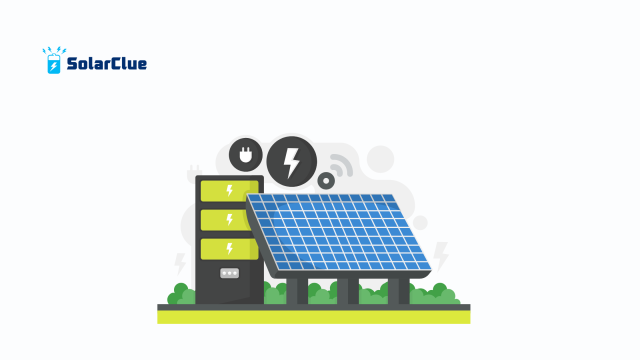
Practical Applications of Solar-Driven Smart Homes
-
Smart Lighting: Lights turn on and off automatically depending on solar energy availability.
-
Climate Control: Smart thermostats adjust air conditioning to align with solar output.
-
Home Appliances: Washing machines, dishwashers, and dryers operate when solar panels produce maximum energy.
-
EV Charging: Electric vehicles can be charged directly from your solar power system during daytime.
-
Security Systems: CCTV and alarms powered by solar panels ensure uninterrupted operation.
Challenges in Integrating Solar with Home Automation
While the benefits are clear, there are challenges to consider:
-
Initial Cost: Setting up a solar power system with smart devices can be expensive upfront.
-
Compatibility Issues: Not all automation systems integrate smoothly with every solar panel setup.
-
Maintenance: Smart devices and solar components require occasional upkeep for optimal efficiency.
The Future of Solar and Smart Homes
The combination of solar energy and automation is not just a trend—it’s the future. With advancing AI, machine learning, and IoT technologies, the integration will only get smarter. Imagine a home that predicts weather patterns and automatically adjusts solar panel usage and storage. This will not only maximize efficiency but also bring homes closer to complete energy independence.
FAQs on Integrating Solar with Home Automation
Q1: Can I integrate my existing solar power system with smart devices?
Yes, most modern smart devices and inverters can integrate with existing solar power systems through compatible apps and controllers.
Q2: Do I need batteries for solar home automation?
Not necessarily. While batteries help store excess solar energy, smart devices can optimize direct usage of electricity generated from solar panels during daylight.
Q3: How much money can I save by integrating solar with automation?
Savings depend on system size, household consumption, and local electricity rates. However, most homeowners notice significant reductions in energy bills.
Q4: Is solar-powered home automation suitable for all types of homes?
Yes, whether it’s an apartment, villa, or independent house, solar panels and smart devices can be tailored to meet specific energy needs.
Q5: Does government policy support solar home automation?
Many countries, including India, offer subsidies and incentives for installing solar panels and renewable systems, making integration more affordable.
Conclusion
Integrating solar power with home automation is more than just a smart choice—it’s a step toward a sustainable future. By harnessing clean solar energy and pairing it with intelligent systems, you can achieve unmatched efficiency, cost savings, and environmental benefits. The future belongs to homes that are not only smart but also green.
If you’re ready to explore the future of energy-smart living, visit solarclue.com and blog.solarclue.com today to discover how you can make your home smarter and greener with solar.

